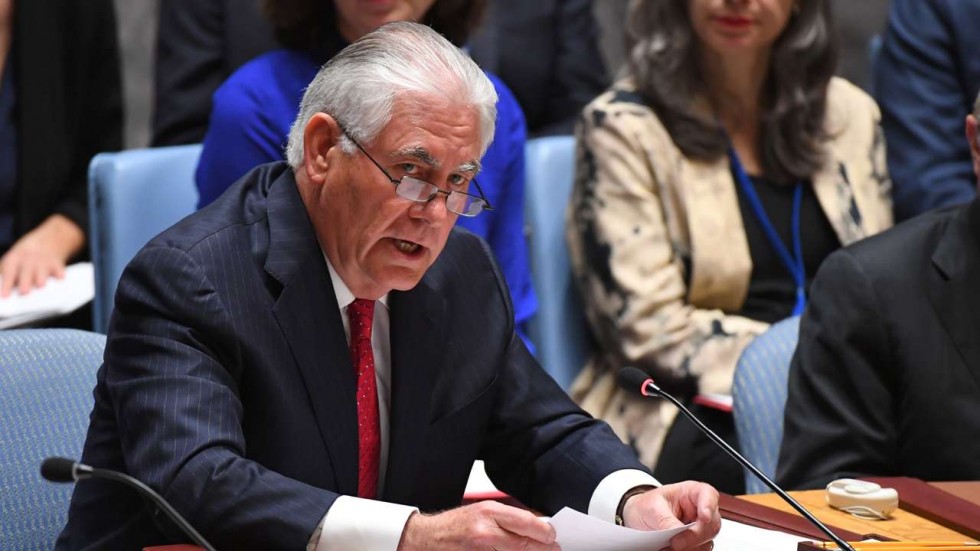North Korea test-fired a mid-range ballistic missile Saturday in apparent defiance of warnings from the United States as a US supercarrier conducts drills in nearby waters.
South Korea’s defense ministry said it suspected the missile test had failed after a brief flight, while the US military’s Pacific Command confirmed the rocket did not leave North Korean territory.
The latest launch came just hours after US Secretary of State Rex Tillerson warned the UN Security Council of “catastrophic consequences” if the international community — most notably China — failed to pressure the North into abandoning its weapons program.
Military options for dealing with the North were still “on the table”, Tillerson warned in his first address to the UN body.
US President Donald Trump, who has warned of a “major conflict” with North Korean leader Kim Jong-Un’s regime, said the latest test was a pointed snub to China — the North’s main ally and economic lifeline.
“North Korea disrespected the wishes of China & its highly respected President when it launched, though unsuccessfully, a missile today. Bad!” Trump tweeted.
Saturday’s launch comes at a point of particularly high tension. Trump has sent a nuclear-powered submarine and the USS Carl Vinson aircraft supercarrier to Korean waters, and North Korea this week conducted large-scale, live-fire exercises on its eastern coast. The US and South Korea also started installing a missile defense system that is supposed to be partially operational within days.
There are also signs that Pyongyang could be preparing for a sixth nuclear test.
China pushed back at Tillerson’s call at the UN Security Council for it to do more to rein in Pyongyang, arguing that it was unrealistic to expect one country to solve the conflict.
“The use of force does not solve differences and will only lead to bigger disasters,” Chinese Foreign Minister Wang Yi said.
His country, he said, should not be “a focal point of the problem on the peninsula” and stressed that “the key to solving the nuclear issue on the peninsula does not lie in the hands of the Chinese side”.
Russia joined China in saying a military response would be disastrous and appealing for a return to talks and de-escalation.
Military action was “completely unacceptable”, Russian Deputy Foreign Minister Gennady Gatilov told the council, and a miscalculation could have “frightening consequences”.
But Tillerson argued that diplomacy had to be backed with credible muscle.
“Diplomatic and financial levers of power will be backed up by willingness to counteract North Korean aggression with military action, if necessary,” he said.
“The threat of a North Korean nuclear attack on Seoul or Tokyo is real, and it is likely only a matter of time before North Korea develops the capability to strike the US mainland.”
